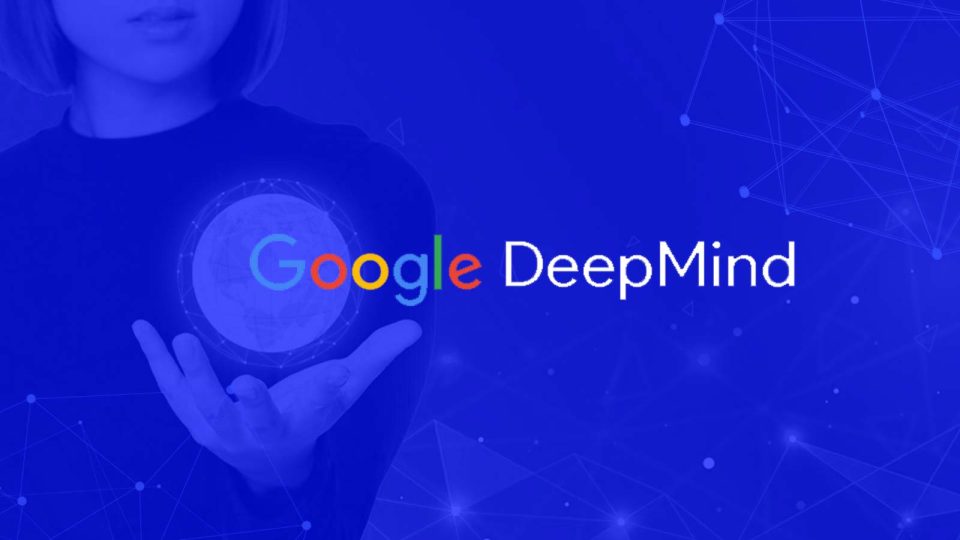An advanced new AI system called AlphaGeometry has achieved a major milestone in mathematical reasoning. It matches the performance of top human competitors on complex geometry problems from the International Mathematical Olympiad (IMO). Developed by researchers at Google DeepMind and Google Research, AlphaGeometry demonstrates sophisticated reasoning skills that far surpass previous AI systems in geometry.

Rivaling Gold Medalists in Olympiad Geometry
The IMO is considered the premier global math competition for high school students. Competitors are tested on six extremely challenging problems under strict time constraints. Performance at the Olympiad is a benchmark for advanced reasoning ability in mathematics.
In a new paper published in Nature, the researchers detail how AlphaGeometry solved 25 out of 30 difficult geometry problems pulled from past Olympiads going back over 20 years. This rivals the average score 25.9 achieved by human gold medalists on the same set of problems.
For comparison, the previous state-of-the-art AI system could only solve 10 out of 30 problems correctly. AlphaGeometry’s performance demonstrates a major leap in AI’s mathematical reasoning and problem-solving capabilities.
A Neuro-Symbolic Approach to Geometry
According to the researchers, a key innovation that enables AlphaGeometry’s success is its neuro-symbolic architecture. The system combines a neural network component with a rule-based symbolic reasoning engine.
The neural network provides intuitive guesses about potentially useful constructs to add to a problem diagram. The symbolic engine then rigorously reasons about the augmented diagram using formal logic to derive a solution. This hybrid approach allows AlphaGeometry to tackle problems beyond the capabilities of either component in isolation.
Training on 100 Million Synthetic Examples
A major challenge in developing AI for mathematics is the lack of training data. Unlike image recognition or language tasks, no large datasets of human-solved math problems are available.
To overcome this limitation, the researchers generated a dataset of 100 million unique synthetic geometry examples for AlphaGeometry to train on. The examples were systematically created by an automated procedure that started with simple diagrams and iteratively added constructs while deriving new geometric relationships. This massive dataset exposed AlphaGeometry to a huge diversity of diagram configurations and proof techniques, enabling it to achieve expert-level proficiency without any human demonstrations needed.
Pioneering Mathematical Reasoning for AI
While AlphaGeometry focuses specifically on geometry, the researchers underscore that its reasoning capabilities have broader implications for AI. Mathematical reasoning requires general skills like pattern recognition, deduction, and knowledge discovery that can transfer across scientific disciplines.
AlphaGeometry demonstrates that key innovations in synthetic data generation and neuro-symbolic architectures can unlock new possibilities for training AI systems to independently learn complex reasoning abilities, expanding the frontiers of automation in mathematics and the sciences.
According to Evan Chen, a math coach and former Olympiad gold medalist who evaluated AlphaGeometry’s solutions, the system displays impressively human-like reasoning:
“AlphaGeometry’s output is impressive because it’s both verifiable and clean. It uses classical geometry rules with angles and similar triangles just as students do.”
AlphaGeometry is restricted to addressing a specific Olympiad problem. However, its proficiency in geometry offers a sneak peek into the future potential of AI. In addition, it indicates the potential for even more advanced systems ready to extend the boundaries of mathematical discovery.
Conclusion
With AlphaGeometry matching world-class human reasoning on Olympiad geometry problems, DeepMind has achieved an important AI milestone. Their work pioneers training techniques and reasoning frameworks that may unlock broader AI advances across mathematics and science. Further developing robust reasoning is pivotal for creating more capable general AI systems.
FAQs
1. What is AlphaGeometry, and why is it considered a significant advancement in AI?
AlphaGeometry is an advanced AI system that Google DeepMind and Google Research researchers developed. It has achieved a major milestone in mathematical reasoning by matching top human competitors’ performance on complex geometry problems from the International Mathematical Olympiad (IMO). Its proficiency far surpasses previous AI systems in geometry, marking a substantial leap in AI’s mathematical reasoning and problem-solving capabilities.
2. How does AlphaGeometry compare to human gold medalists in Olympiad geometry?
AlphaGeometry has demonstrated remarkable performance by solving 25 out of 30 difficult geometry problems from past Olympiads, rivaling the average score of 25.9 achieved by human gold medalists on the same set of problems. This highlights the system’s ability to solve highly challenging mathematical problems.
3. What sets AlphaGeometry apart from previous AI systems in mathematical reasoning?
One key innovation contributing to AlphaGeometry’s success is its neuro-symbolic architecture. This combines a neural network component with a rule-based symbolic reasoning engine, allowing the system to generate constructs using the neural network intuitively and rigorously reason using formal logic. This hybrid approach surpasses the capabilities of either component in isolation.
4. How was AlphaGeometry trained, considering the challenge of limited training data for mathematical tasks?
To overcome the lack of training data for mathematical problems, the researchers generated a dataset of 100 million synthetic geometry examples. These examples were created systematically using an automated procedure, starting with simple diagrams and iteratively adding constructs. This extensive dataset exposed AlphaGeometry to various diagram configurations and proof techniques, enabling it to achieve expert-level proficiency without relying on human demonstrations.
5. What broader implications does AlphaGeometry’s success have for AI and mathematical reasoning?
AlphaGeometry’s success in mathematical reasoning extends beyond geometry, showcasing its potential for general skills like pattern recognition, deduction, and knowledge discovery. The neuro-symbolic architecture and synthetic data generation techniques pioneered by AlphaGeometry open up new possibilities for training AI systems to independently learn complex reasoning abilities, potentially advancing automation in various scientific disciplines.
6. How does AlphaGeometry contribute to the future potential of AI in mathematical problem-solving?
While AlphaGeometry is currently limited to addressing specific Olympiad problems, its proficiency in geometry provides a glimpse into the future potential of AI. It suggests the possibility of developing even more advanced systems capable of further extending mathematical discovery boundaries.
[To share your insights with us, please write to sghosh@martechseries.com]


